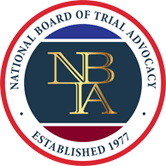Albuquerque Nursing Home Elopement Lawyer

When you entrust your loved ones into the care of a nursing home, you do not expect them to put your loved ones into dangerous situations. Elopement, like unattended wandering, can lead to serious injury when it is not addressed. If you know someone who has been hurt as a result, reach out to an Albuquerque nursing home elopement lawyer at the Branch Law Firm today.
What Is Nursing Home Elopement?
Nursing home elopement occurs when a resident of a nursing home is not prevented from exiting the premises. Often, these residents leave without knowing where they are going or having the proper tools to care for themselves. This can introduce a variety of dangers to the resident and should be prevented through appropriate safety protocols.
It is similar to wandering, except that wandering is usually contained within a premises. Both are characterized by a lack of supervision, ignorance on behalf of the staff, and a particular risk to those with specific accessibility needs.
Is Elopement a Form of Abuse?
Elopement is not a form of abuse, although it is a form of neglect. Abuse and negligence can typically be distinguished by action. Abuse is an action that harms an individual, whereas negligence is inaction or willful ignorance that leads to another individual’s harm. Both can be tried in court, although you might have more difficulty proving negligence than proving abuse.
The Dangers of Elopement in Nursing Homes
Typically, residents who elope from their nursing homes are confused, disoriented, or unaware of the circumstances of their surroundings. Elopement puts them at further risk of endangering themselves; those who elope can go missing, hurt themselves, or even die. It is especially dangerous to residents with cognitive impairments or serious disabilities who need individualized care to accomplish tasks.
Nursing homes should have protocols for combatting elopement. Some use different-colored clothing articles to denote residents at risk of elopement, and some rely on specialized alerts. If a nursing home has failed to prevent elopement, something must be changed fundamentally, or else it risks endangering the health and safety of more patients.
Preventing Nursing Home Elopement
Nursing homes must have security measures in place to combat elopement. Without these measures, nursing homes can be considered negligent and, therefore, liable for any harm that comes to the resident. Preventative measures can look like:
- Adequate supervision of the resident’s circumstances
- Revocation of any items that enable a resident to wander
- A quick response following an alert that a resident is wandering
- Plans and/or protocol to address elopement
How Quickly Should You Report Elopement?
Elopement can result in harm to your loved one if it is not properly addressed. A lack of attention and guidance for confused residents can lead them into dangerous situations they cannot navigate away from. For the sake of their safety, you should report any suspected cases of elopement as quickly as possible.
Legal claims made against government entities and public employees must abide by a strict statute of limitations. New Mexico requires a claim to be made within two years of the particular incident or, in some cases, two years from the moment you discovered it happened. To ensure that your case has a strong groundwork for success, discuss your situation with an experienced nursing home lawyer from the Branch Law Firm.
How We Handle Elopement Cases
We handle elopement cases with the utmost consideration and respect for your loved ones. In most cases of elopement, a nursing home has already betrayed the trust you gave them in caring for your loved one. We strive to bring justice for you and your family members so that you can move forward with better care that matches your needs.
FAQs:
What Is Elopement Risk in Nursing?
Elopement risk in the nursing field is a factor that enhances the likelihood of someone to elope. In nursing homes, common elopement risks are:
- Cognitive impairments (dementia, Alzheimer’s)
- Dissatisfactory living arrangements – Arrangements that a resident may want to evade
- Unmaintained security measures – Improper measures in place to prevent confused residents from leaving on their own
- Lack of supervision and care
What Is Nursing Home Negligence?
Nursing home negligence occurs when a staff member or caretaker does not provide care that is necessary for a resident, resulting in harm or endangerment. It is an absence or resistance to administer care. Neglect within a nursing home can look like:
- Lack of hygiene maintenance for the resident
- Lack of assisted movement and exercise
- Not making sure the patient eats or drinks enough
Which Residents Are at an Increased Risk for Elopement?
Nursing home residents in Albuquerque, NM who are at an increased risk for elopement are those with cognitive impairments or residents whose needs are not being satisfied by the home. Relevant cognitive impairments can include dementia and Alzheimer’s, but they may also be any impairment that makes residents disoriented or confused. Residents without appropriate care can also choose to elope from the nursing home if their needs are unmet.
What Is the Difference Between Wandering and Elopement?
Although wandering and elopement tend to occur together and be referred to similarly, they are not the same thing. The difference between wandering and elopement is whether or not the resident leaves a space. If a resident leaves a space unnoticed or unsupervised, that is elopement. If they simply move around the space unnoticed or unsupervised, that is wandering. Both can be dangerous, even if wandering is contained within a space. Elopement can also be an escalation of wandering.
Contact a Nursing Home Attorney at the Branch Law Firm
When you make the decision to put your loved ones in the care of a nursing home, you trust them to act with your loved one’s best interests in mind. When care is not adequately administered, and this results in elopement and injury, reach out to the Branch Law Firm for comprehensive legal counsel. An Albuquerque nursing home elopement lawyer can help you build a strong case that prioritizes your loved one’s particular circumstances and brings them justice.
 Knowledge Experience Compassion Service
Knowledge Experience Compassion Service 






